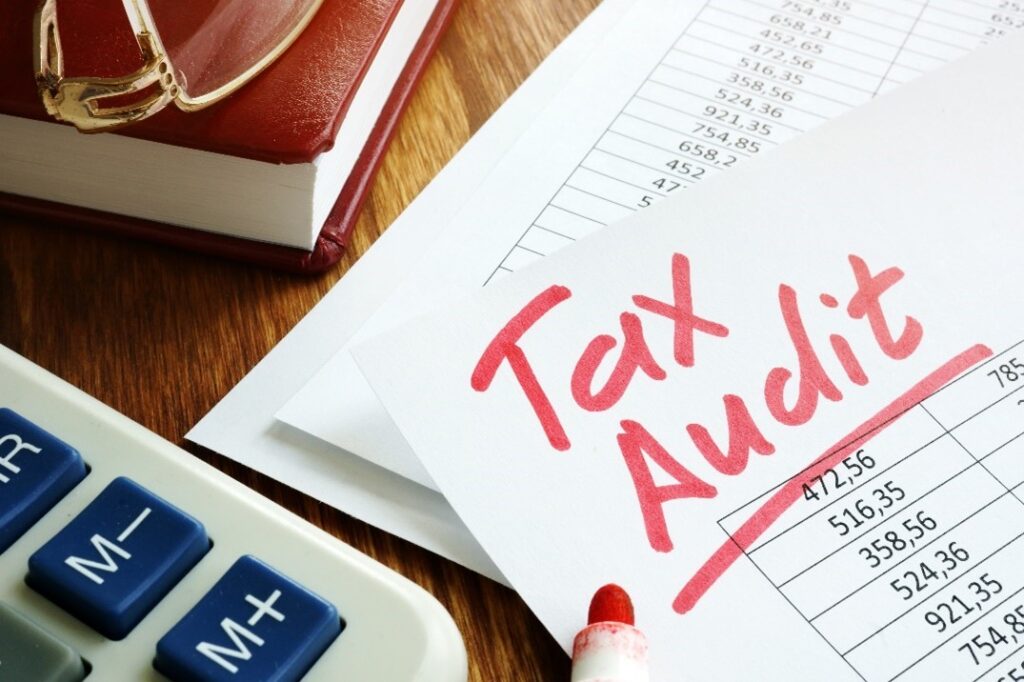Three Ways to Avoid Tax Audits, Expanded

Top three (of 10) ways to avoid a tax audit.
From our series of the top 10 ways to avoid a tax audit, we thought we would go into greater detail about the first three tips. More to follow…
We’ll explain how our list was created and expand upon each suggestion. The list was created by culling together various lists from various experts. For example:
The top 3 ways to avoid an IRS audit from GROCO.com’s article; “7 simple strategies for avoiding an IRS audit”:
- Tell the truth when filing your taxes
- Get organized and keep detailed records
- If you’re self-employed keep track of literally everything
From LegalZoom, here are their top 3 ways:
- Don’t report a loss
- Be specific about expenses
- Provide more detail when needed
From Forbes, their top three:
- Check your math
- Be as normal as possible
- Double check Social Security Numbers (SSNs)
From WSOC-TV, Charlotte, NC, their top 3 of 10 tips from Action 9 to Avoid IRS Audit as Tax Due Date Approaches:
- Double check your numbers
- Give the exact dollar figure
- File electronically
All these lists led us to our top ten article; and subsequently to the more detailed top 3 recommendations below:
- Be honest, accurate, and tell the truth; the whole truth
- Get organized and keep detailed records (up to 7 years in most cases).
- Avoid unreasonable deductions and income, see #1 above…
Tip #1
So, why is “Be honest, accurate, and tell the truth!” listed first? Very simply, if you are honest, accurate, truthful, and use a professional to check or prepare your return, you probably have nothing to worry about. And unless you are very wealthy and/or have a complex tax return, you likely won’t be audited in the first place. Tip number one will allow you to sleep at night knowing you likely won’t be audited, but even if you are, there will be no interest or penalties owed.
As a de facto collection agency, the IRS is not interested in how nice you are or how clearly logical and reasonable your return’s details are; they are trying to collect money! If your return is complex or you are wealthy, there is a better chance of collecting money from you, even if you are a nice person and have reasonable explanations. Candidly, you better be able to substantiate each number and deduction used is accurate with tangible proof. Specifically, you should have the actual records, receipts, bills etc.
Tip #2
Which leads us to the second top tip: “Get organized and keep detailed records (up to 7 years in most cases). As mentioned in tip number one above, be accurate and have proof. The IRS auditor is allowed to be creative in how they find shortfalls, or money owed. However, you are not allowed to be creative in how you defend your return. Without proof, i.e., records, receipts bills, etc., you will not likely win any point or discrepancy the auditor brings up.
No matter how sensible your strategy and numbers are, without proof, you will likely end up paying more than you truly owe. The auditor is not there to be fair; they are there to collect money, and as much money as they can, reasonably or not. Auditors get lied to every day, so don’t expect them to give you the benefit of the doubt. And the more organized you are, the quicker they will see that you have all the answers, and they will want to move on to their next, less organized (and more profitable) audit.
#3
Why should you “Avoid unreasonable deductions and income”? This is a really great question. Even the flimsiest tax preparation strategy can work if you are not audited. However, if you are, and the auditor feels you’ve crossed the line of what is reasonable, it’s like blood in the water to a shark. They will likely intensify and expand their efforts. Being able to find something wrong, or just unsupportable by their current interpretation of the tax code will result in you having to pay money, which is exactly their goal.
However, if they think there’s a chance of fraud or tax avoidance, then they now have an even bigger stick than accurate records to apply as leverage. Now they can use the threats of freezing assets and jail. This is the worst-case scenario for someone being audited, and the reason so many taxpayers use professional tax preparers.
As stated before, it’s impossible to completely rule out the possibility of an IRS audit, but by taking these measures you can greatly reduce your chances of being chosen for an audit. If you feel like the IRS might single you out for an audit, then contact the professional CPAs and tax advisors at GROCO for help.
We hope you found this article about “Three Ways to Avoid Tax Audits, Expanded” helpful. If you have questions or need expert tax or family office advice that’s refreshingly objective (we never sell investments), please contact us or visit our Family office page or our website at www.GROCO.com. Unfortunately, we no longer give advice to other tax professionals gratis.
To receive our free newsletter, contact us here.
Subscribe our YouTube Channel for more updates.

Alan Olsen, is the Host of the American Dreams Show and the Managing Partner of GROCO.com. GROCO is a premier family office and tax advisory firm located in the San Francisco Bay area serving clients all over the world.
Alan L. Olsen, CPA, Wikipedia Bio

GROCO.com is a proud sponsor of The American Dreams Show.

The American Dreams show was the brainchild of Alan Olsen, CPA, MBA. It was originally created to fill a specific need; often inexperienced entrepreneurs lacked basic information about raising capital and how to successfully start a business. Alan sincerely wanted to respond to the many requests from aspiring entrepreneurs asking for the information and introductions they needed. But he had to find a way to help in which his venture capital clients and friends would not mind.
The American Dreams show became the solution, first as a radio show and now with YouTube videos as well. Always respectful of interview guest’s time, he’s able to give access to individuals information and inspiration previously inaccessible to the first-time entrepreneurs who need it most. They can listen to venture capitalists and successful business people explain first-hand, how they got to where they are, how to start a company, how to overcome challenges, how they see the future evolving, opportunities, work-life balance and so much more..
American Dreams discusses many topics from some of the world’s most successful individuals about their secrets to life’s success. Topics from guest have included:
Creating purpose in life / Building a foundation for their life / Solving problems / Finding fulfillment through philanthropy and service / Becoming self-reliant / Enhancing effective leadership / Balancing family and work…

MyPaths.com (Also sponsored by GROCO) provides free access to content and world-class entrepreneurs, influencers and thought leaders’ personal success stories. To help you find your path in life to true, sustainable success & happiness. It’s mission statement:
In an increasingly complex and difficult world, we hope to help you find your personal path in life and build a strong foundation by learning how others found success and happiness. True and sustainable success and happiness are different for each one of us but possible, often despite significant challenges. Our mission at MyPaths.com is to provide resources and firsthand accounts of how others found their paths in life, so you can do the same.
Top Ten Real Estate Tax Breaks
Here’s a look at the Top 10 Real Estate Tax Breaks for the homeowner/investor. Real Estate Tips 1-3 1. Mortgage Loan Interest: Deductions reduce your taxable income against which your taxes due are calculated.2. Home Improvement Loan Interest: You can deduct all the interest on a home improvement loan provided the work is a “capital improvement”…
GROCO’s Mission Statement
GROCO’s Mission Statement About GROCO At Greenstein, Rogoff, Olsen & Co., we strive to deliver the best service to our clients. We are successful because we stay true to our vision, work hard toward our mission, and employ a series of core values. Our Vision is to be the most trusted advisors in the Bay Area serving…
Choosing a Real Estate Investment Market
Choosing a Real Estate Investment Market OK, everyone’s heard the old saying that “Location, Location, Location” is the most important factor when buying real estate right? But what does that really mean? What about a location should you know before buying a property for long term rental? Buying because the property’s in your own home…
Shareholders Pleased as Musk Decides Against Taking Tesla Private
The shareholders are pleased that Elon Musk decided against taking tesla private in what was sure to be a controversial move. Not wholly unlike several bold and surprising moves the worlds most famous entrepreneur has done in recent years. Tesla’s CEO Elon Musk recently created quite a stir after suggesting he was considering taking his…




